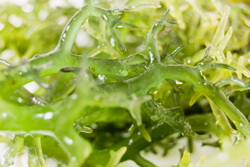Potential plant factories for renewable resources
The potential for development of bioproducts from non-food crops confers the promise of many advantages. Millions of years of evolution have resulted in molecular design normally unequalled by man-made material. Not only that, but cropping can act as a significant carbon sink when managed properly and natural products are more likely to be readily degradable and recyclable. However, to reach European agricultural, industrial and market potential, there must be a planned integrated analysis for the future of non-food applications. A consortium of 12 partners using advice from 45 experts from Europe, the United States and further afield came together to form an EU-funded project with an interest in the untapped potential of bioproducts. The primary aim of the multidisciplinary 'Realising the economic potential of renewable resources - bioproducts from non-food crops' (Epobio) project was to review the scientific and technical challenges facing non-food crops while considering legal, societal and environmental constraints. Aiming for market presence by 2020, Epobio earmarked plant cell walls, plant oils and biopolymers as important areas for new international research activities. The key outputs of the Epobio project were 12 reports, workshops identifying action priorities and policy recommendations for the development of the bioeconomy in these areas. Biotechnological areas covered in the reports include cell wall saccharification for biofuel production, a lubricant from the oil crop Crambe abyssinica and alternative sources of rubber. Oil crop platforms were also a prominent area of consideration in the context of industrial uses, including chemical and biopolymer production. Industrial applications of micro- and macro-algae, the seaweeds, were also addressed. One workshop in particular covered the potential of green plants to utilise solar energy. Funding being crucial to research and development (R&D), Epobio had identified key research funding bodies and policymakers in the European Union early in the course of the project. Meetings with officials in the Commission saw the discussion of current policy as well as funding and policy impacts. Wide dissemination will make sure the results of Epobio will bear economic fruit for the benefit of society as well as entrepreneurs with vision and a green outlook. The website at http://www.epobio.net(opens in new window) presents the public face of the project in no less than seven languages and there are two CDs distributed as a package with the report ‘The impact of non-food research 1988-2008’.







